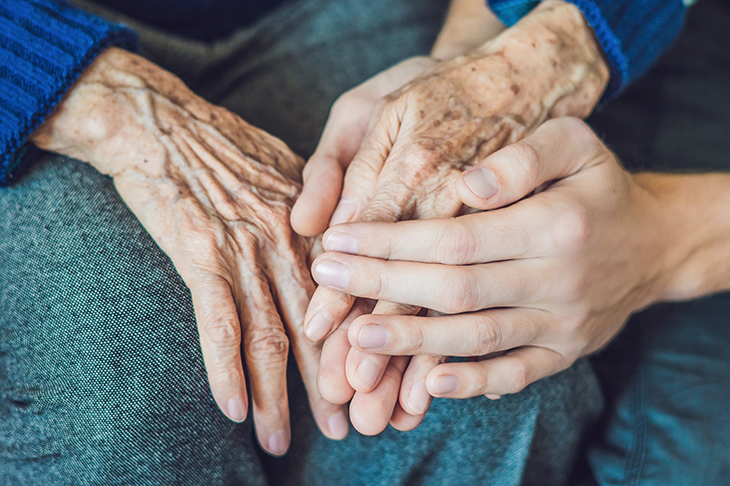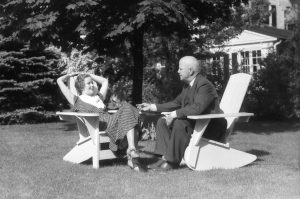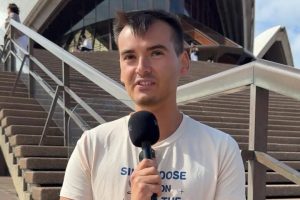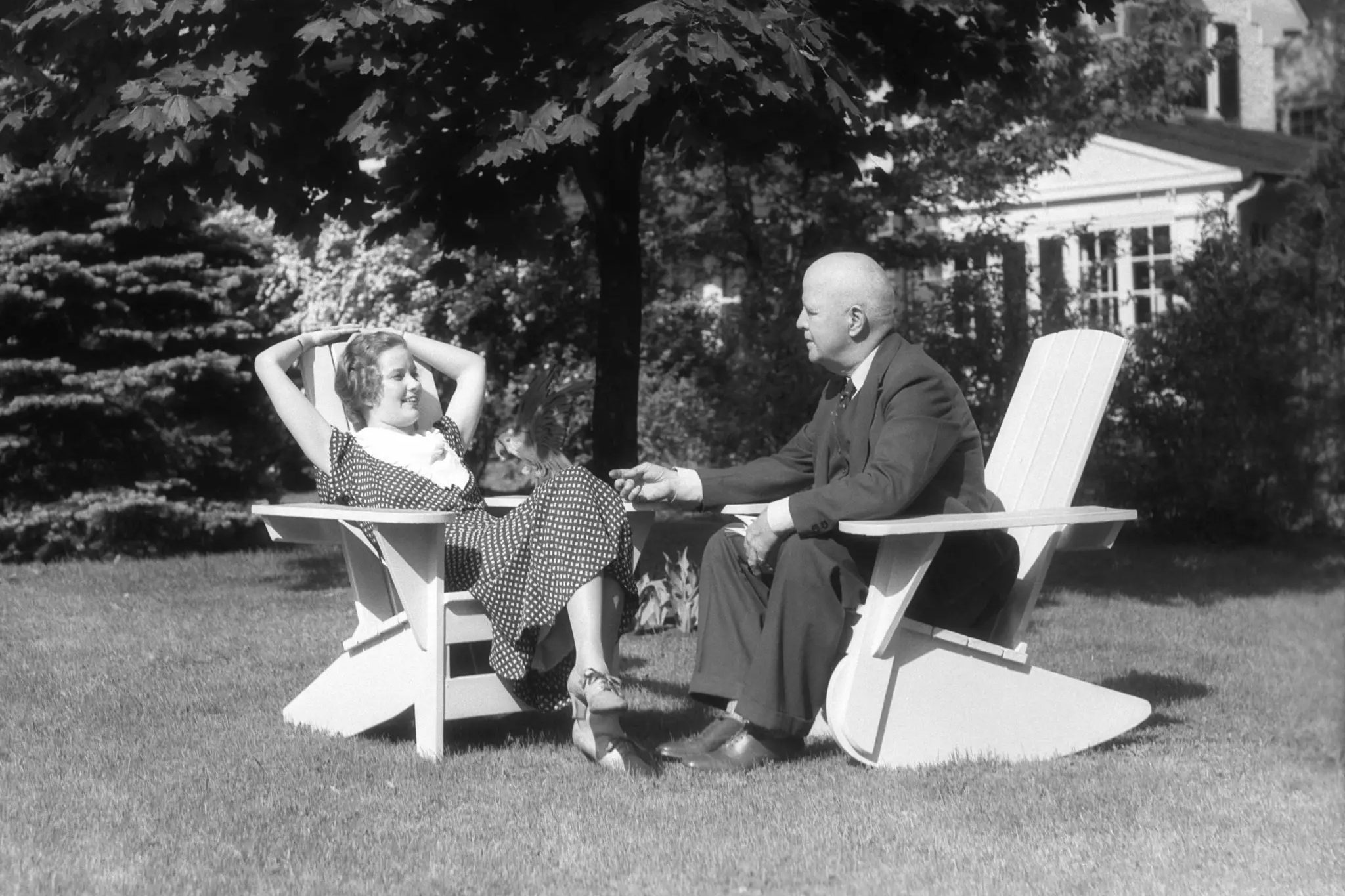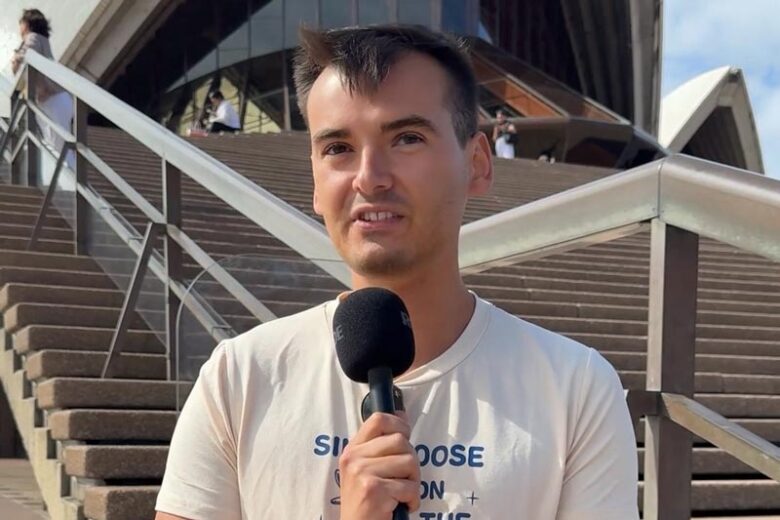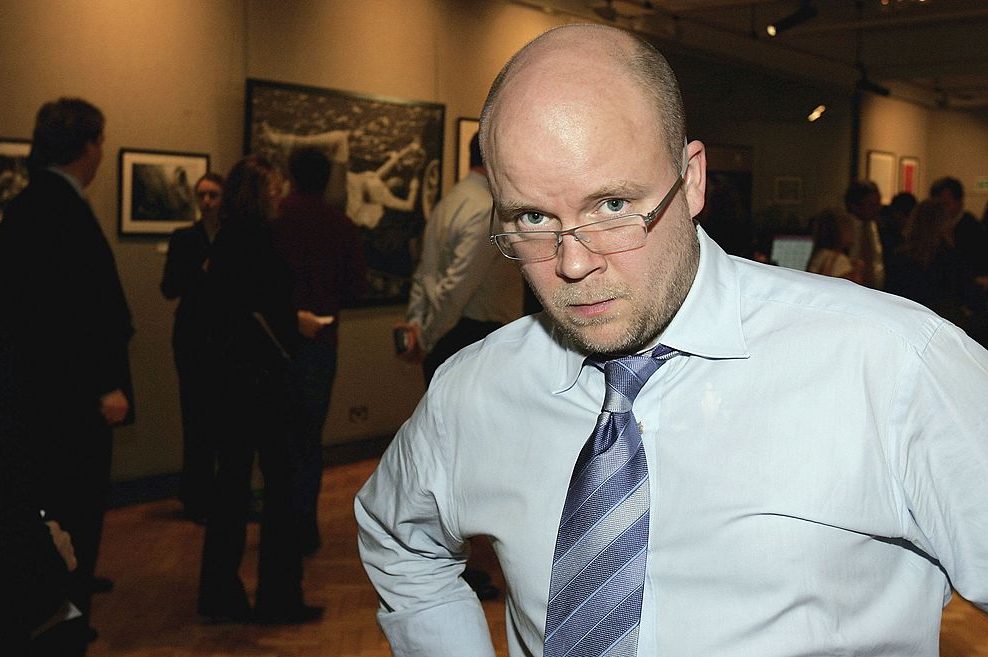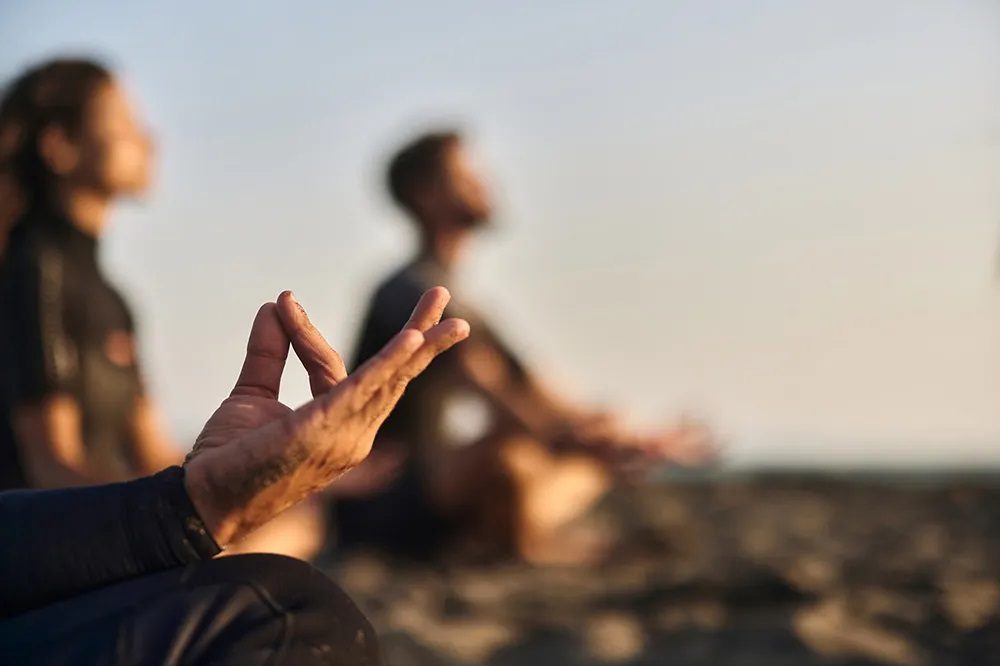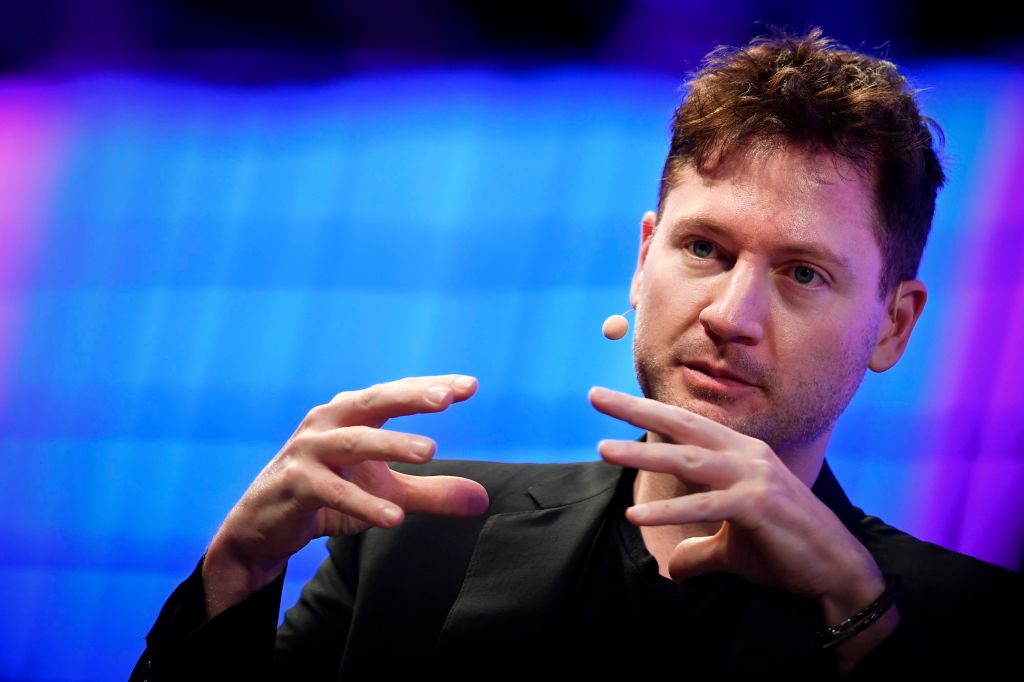The bravest thing I’ve ever seen was 93-year-old Albert’s decision to die and the days after in which he stuck to his resolve and sank away from consciousness, like a swimmer turning tail and just diving down into the dark.
Albert was not religious, but I’m writing this now because though I’ve been Catholic for a decade, it was only after his final week, in the spring of last year, that I began to understand Easter and the Passion of Christ.
I first met Albert when fate decided to call my bluff. For years I’d bored on to my husband about the need for a scheme to put locals in touch with their elderly neighbors. Then one night out in a north London restaurant, there was a card on the table advertising just that: the Befriending Network.
When I called the next day they put me in touch with an even more local charity, Dorcas, and within days I was matched with Albert (no kids, wife deceased) and committed to visiting once a week. If only big charities were so nimble.
Our first meeting was inauspicious. We were chaperoned by the scheme’s co-ordinator Laura, a beautiful, joyful thirtysomething who’d signed up Albert the week before. Albert sat back in his leather chair, ancient and inscrutable, but it was clear he felt he’d been the victim of a bait and switch.
Our second date, unaccompanied, wasn’t much better. Albert was extremely deaf — both medically and occasionally by choice. I sat opposite him in his stifling flat, sweating and shouting questions. ‘So, Albert, I gather you paint?’
‘Sorry?’
‘Do you paint, Albert?’
‘I’m sorry…’ A gesture to his ear. A sad shake of the head.
When it was time to go, Albert said (not unkindly): ‘Listen, it was my nephew’s idea, this. I don’t need anyone you know. I’m not lonely.’
Week by week, we began to get on better. Albert told me about his job as a radio operator in the war and a girl he loved, though never met and only ever knew by her radio call sign. He showed me his paintings and I showed him mine and by the spring of 2017 we were friends. I never knew either of my grandfathers. I’d never really known someone in their nineties before. So it was an education as well as a friendship — a crash course on what’s in store.
Albert was always well turned-out, but he let slip one day that it took him four hours to get dressed. An hour just for the socks, he said, because of the trouble reaching his feet.
Nurses came a few times a week but they were often rushed and occasionally rude. Sometimes, said Albert, they just barge in and start unbuttoning my shirt without saying a word. Is that normal?
When he fell asleep mid-conversation, I’d sit and look around his flat. There was a series of watercolors of Britain’s great cathedrals, and around the room at waist height a hand-painted golden line.
In the winter of 2017, Albert fell. It was obvious he would, just a matter of when and who found him. I arrived one day at his front door, and when I knocked, heard not the usual shuffle of feet but a faint cry from inside. He was lying on his bedroom floor. He’d been there all day, but when I tried to lift him up I couldn’t. I wrote a piece once criticizing medics who won’t lift patients for fear of injury to their backs. I regret that now. Even Albert’s bird-like body weighed a ton. But somehow, between us, we did a sort of crazed slow-dance to his chair where we began what turned out to be a seven-hour wait for help. All through that afternoon we waited, and late into the evening. I took to calling 999 every hour, asking about the progress of our ambulance until one call handler, finally told us the truth: ‘There is no ambulance coming. We’re too busy. You keep being moved down the queue.’ Then he said: ‘I can’t cope. I just can’t cope with this job.’ It was dark by then and raining. I remember looking over at Albert, covered in blood and half-dressed, and thinking how comparatively dignified he was.
Albert spent a month in hospital, going from the rehab ward to A&E and back with continuous infections. His bed was a mattress on the floor because, said the ward sister, he kept falling out. ‘I’m not falling,’ said Albert, ‘it’s just that when I wake up in the middle of the night I don’t know if I’m lying or standing. It’s the strangest sensation.’ I remember thinking Albert’s soul might be trying to leave his body. I didn’t share the thought.
Until that point, Albert’s future had been in the hands of the hospital staff. ‘They’re having a meeting about me,’ he’d say when I visited, with the anxious look of a pupil on parents’ day. But in mid-February, he took charge of his life again.
‘I have to die,’ he whispered with a sort of despairing resolve. ‘There is no other way.’ And I couldn’t contradict him because he was right.
When I next saw Albert a few days later, he was on his way — unreachable, sunken, well beyond speech. ‘He won’t eat or drink,’ said the nurse, ‘and he kicked a hole in the hospital wall last night.’ She sounded impressed. But Albert was still there somewhere inside his skeletal body because when I took his hand he squeezed hard for several minutes. So I kissed his head and said something stupid like: ‘It’s going to be OK.’
This is not an argument for euthanasia. There wasn’t really a way of making Albert’s end tidier or less painful. Like Christ in the garden of Gethsemane, he wanted very much to live and half his agony was in the realization there was no other way.
Afterwards I thought about all the pointless life advice the 21st century offers: you can do anything you want. Just be yourself. And I thought about the cross, which tells the truth whether we like it or not.
This article was originally published in The Spectator magazine.



